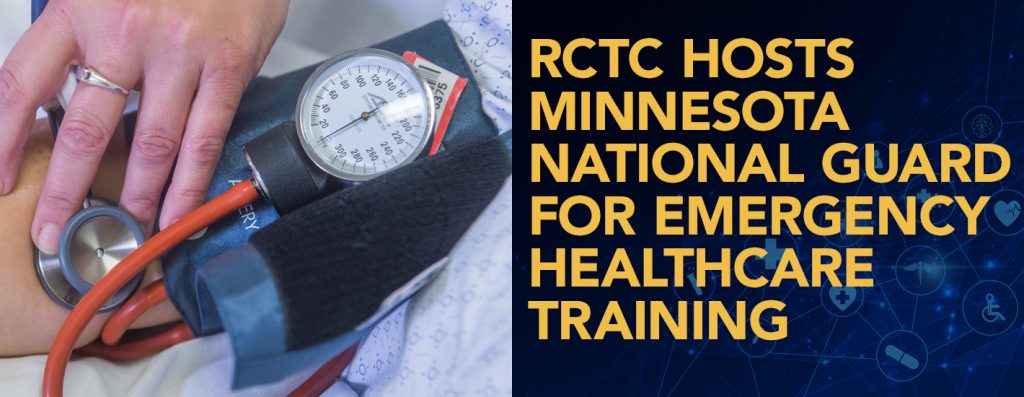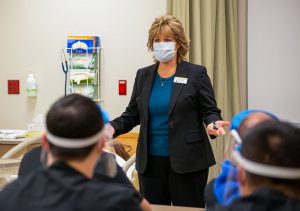
RCTC is proud to be one of 16 Minnesota State colleges that have partnered to provide emergency Certified Nursing Assistant (CNA) training for members of the Minnesota National Guard. Guard members will serve in under-staffed healthcare centers and assist in long-term care facilities to address staffing difficulties and shortages during a period of heightened need due to the pandemic. RCTC is hosting two groups of guard members–the first which began their training November 27th, will complete their training December 5th, and another group which will begin their training on December 8th.

This Certified Nursing Assistant training is a collaboration with RCTC’s Center for Business and Workforce Education, and the Healthcare Training Network, the Minnesota State non-credit healthcare training sector. RCTC’s BWE and Nursing Departments mobilized within a week to respond to a request from the Minnesota National Guard to provide CNA training. RCTC is one of 16 campuses that have opened training for over 400 National Guard members. Additionally, up to 400 more participants can be trained before June 30, 2022.

The Nursing Assistant for the National Guard training is a 75-hour training that will be delivered in-person and in a hybrid model. A hands-on skills lab is included in the training. National Guard members who complete the training with a passing grade will also be eligible to sit for the written and skills test. Participants who pass both portions of the testing for nursing assistant will be placed on the Minnesota Nursing Assistant Registry and will be eligible to continue working as a nursing assistant in their civilian life. This training may be the start of a career pathway in a very high-demand field: according to RealTime Talent, prior to the COVID-19 pandemic, nine employers completed a two-year forecast estimating they would need to fill 5,400 positions just within their metro region locations.
